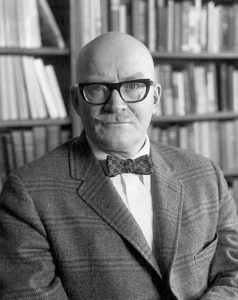 Editor’s note: we have two very different styles of tribute for Professor Waite. History major Bob Heiss was Waite’s student; Yani Counelis knew the man and his family intimately but never formally studied with him. We thank both authors for graciously sharing their work with us and for accommodating each other’s approaches and styles.
Editor’s note: we have two very different styles of tribute for Professor Waite. History major Bob Heiss was Waite’s student; Yani Counelis knew the man and his family intimately but never formally studied with him. We thank both authors for graciously sharing their work with us and for accommodating each other’s approaches and styles.
Bob Heiss:
What I remember is the intensity of a man on a quest.
The man? Historian Robert G.L. Waite. His shaved bald head and magnificent, curled mustache only amplified the overall impression he projected. Sometimes he rubbed one hand across the top of his head, as if for emphasis, or inspiration. Waite dressed in the academic style, with bow tie and tweed jacket, and carried a satchel of books into class.
The quest? Divining the twisted psychological profile of Europe’s most notorious twentieth century sociopath and mass murderer, Adolph Hitler. When Professor Waite addressed the subject in class, his eyes were animated, his voice transfixing his students.
We did not know that Waite had been born in Canada, suffered from weak eyes and a deaf ear, and had served stateside in the U.S. Army during 1942-45. As a grad student at Harvard he immersed himself in German history with a focus on the Nazi period. His dissertation, later published, concerned the Freikorps movement, the right-wing paramilitary units active in post-World War I Germany.
In 1949 Waite received an appointment to the history department at Williams. He suffered debilitating depression in his first year. President Baxter allowed him to take a medical leave of absence and personally arranged an appointment for him with a well-known psychiatrist. This personal experience profoundly shaped his interest in the field of psychiatry and set Waite on an intellectual course that combined history with psychoanalytic study, known as “psychohistory”, focused on Hitler. In 1953 he conducted research as a Guggenheim Fellow in Germany.
Waite delved deeply into Hitler’s mental fixations and sexual profile to try to understand what had made him what he was. For him the keys to understanding were the actual statements made by the subject.
In the course of this process he consulted both psychiatrists and notable historians including James MacGregor Burns. The observation he often uttered is that “the career of Adolf Hitler raises questions that can be answered neither by psychology nor by history working alone”.
In our college days some of us heard a theory about Robert Waite that we were not certain was true. Had William Shirer scooped Robert Waite when he published The Rise and Fall of the Third Reich in 1960, thus sending Waite temporarily into despair, but also driving him to redouble his efforts on his own psychohistorical analysis of Hitler?
Although he wrote and spoke widely during his career, Waite’s magnum opus, The Psychopathic God: Adolph Hitler, was not published until 1977. By all accounts it produced great controversy.
As our teacher, illuminating the dark days of Nazi Germany and its Fuhrer, Robert Waite was spellbinding in class. His quest became our quest.
Yani Counelis:
Waite’sland: A Personal Remembrance
Bob Waite wasn’t my history professor. He was my surrogate academic dad. My personal history was shaped by the loving support I found in the Waite family. Miracles began as Geoffrey, their first born, went off to Harvard the same year, 1964, that I landed in Williamstown. I was taken into Bob and Anne’s home as a welcome foreign student.
I know Bob as a teacher instructed everyone that History was a legitimate academic discipline as precise as astrophysics, subject to the highest scientific scrutiny, unlike the propaganda I was fed as “lessons of history” in high school. He also put Humanism back into the teaching of the Humanities. He self-described the ideal Williams professor: one-third Scholar, one-third Didactic Coach, and one-third Ham!
When Bob the professor repeatedly announced with a twinkle in the eye and a crafty scholarly fingertip twist of his blond moustache, “…what a gentleman and a leader of men you are, Counelis”, my impression was that he was referring to his own attributes. He was not!
Robert George Leeson Waite was born a hundred years ago in Cartwright, Manitoba, when the Great War was ravaging Europe. In the same year, 1917, my parents saw the Attic light in Athens, a city that was spared the devastation of WWI. The World Wars and their political milieu were the domains that History Professor Waite interpreted.
For me, the Waites were more than icons of the Williams Community. They merged with our family to become as one. Two months after entering Williams, I experienced culture shock when I rushed Alpha Delta Phi, soon to be known as Perry House. That shock would have persisted to this day, had not Anne Waite introduced me to Christine Ann Jackson, my partner in Life and Art, in 1967, the year the Greek Junta hit the news featuring the dictatorship of the Colonels.
As the center of my surrogate family, Bob brought his tribe to Athens in the summer of 1967. There I arranged an uneventful blind date between the Waite sons, Geoffrey and Peter, with my cousins… a risky enterprise that ended peacefully. A more tricky situation occurred in the early spring of 1971, when Bob hosted my parents in the Faculty Club at Williams. They visited me in the last year of architecture school to investigate what was meant when I was proposing marriage to my classmate from Williams. “We thought Williams was a men’s school!”, my father commented with a panicky Greek up-tone. The Waites explained, in carefully pronounced English, that they had introduced me to Christine in Williamstown; therefore, she could be regarded as an academic soulmate, which, liberally translated back into Greek by me, would certainly qualify as “classmate”!
The personal stories are endless and wonderful. They kept coming after Bob’s retirement, when he grew a beard, continued to shave his brilliant skull (a habit he acquired before it became fashionable), gave up his pipe and picked up needlepoint. Consider the outlandish sign he posted on his front lawn: “Trespassers will be violated”.
As another miracle, I got to know Peter Waite, their younger son, who was already an accomplished artist as a teenager. Today Peter is a paradigm of the creative spirit which keeps inspiring me. His gentle and humorous sketches of RGLW, Anne and their dog McDuff, grace the pages of the professor’s autobiographical comedy. It was published in 1999, just months before Bob’s demise. Hitler, Kaiser and Me, an Academic’s Procession is a slim yellow volume that can be found in the New Sawyer Library or Amazon. To read the revelations within is to notice the wit and wisdom Bob combined so gracefully. An example from the book pertinent to today’s academic climate at Williams: RGLW ended a contentious faculty meeting by storming out shouting, “I ‘m ending this chicken shit…”
A deep dive into RGLW’s writing talent through his books is strongly recommended. Hitler the Psychopathic God, in reference to the poem by A.W. Auden is an enlightening introduction to Psycho-history. His standard Williams College Style Manual is a guide to scholarly writing and inventive humor.
A few, fifteen meter iambic lines would be the appropriate conclusion to this memorial text. They will also bring nostalgia and other Hellenistic words to the classically trained minds amongst us:
Άνδρα μοι ένεπε Μούσα πολύτροπον
ός μάλλα πολλά πλαγχθει επί Τροίης
ιερόν πτολίεθρον έπερσεν
……………………………………………
…and for the Erasmians:
Andra moi enepe Mousa polytropon
Os Malapolla plagthee epi Troies
Hieron ptoliethron epersen.
Liberally translated into English:
Muse, sing to me the Man’s crafty scholarly way
Who wondered and suffered some fame
After he sought to partly destroy
A hallowed village close to Troy
(N.Y.)
John Yani Counelis
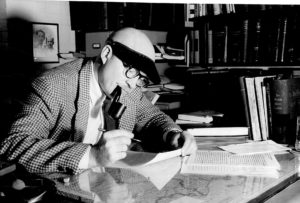
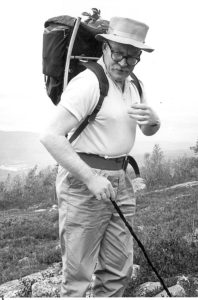
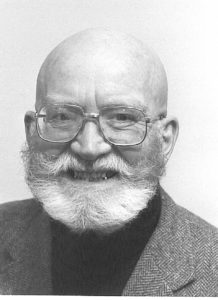
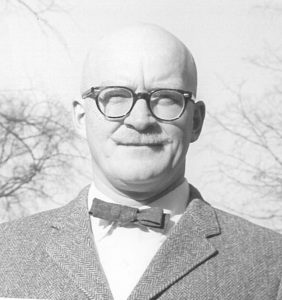

Fine, constructive rearranging and subtle editing of my text. Also brilliant counterpoint to Bob Heiss’ note about RGLW. Very informative story from Bart Phelps, concerning Art History, and Monuments Men.I would like to add Lee Hirshe as a prime contributor of creative force to those of us who followed Art related fields.Yani Counelis.